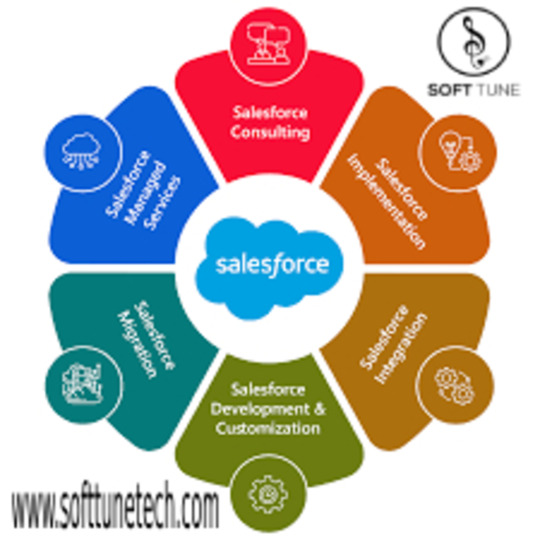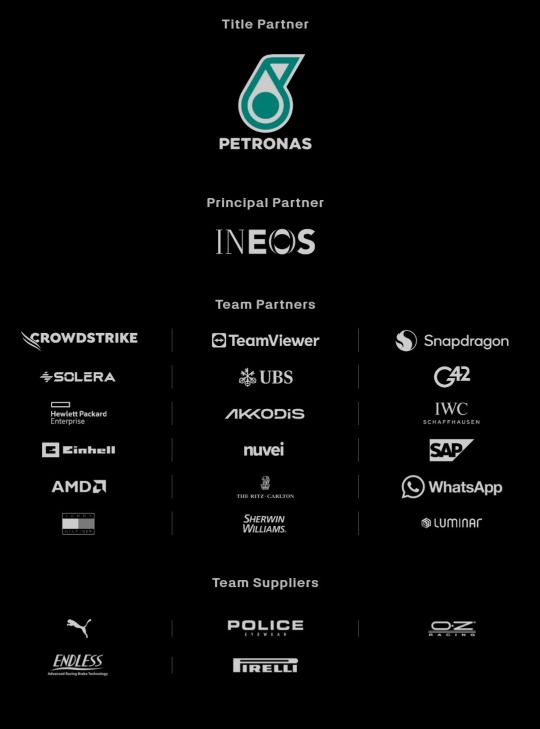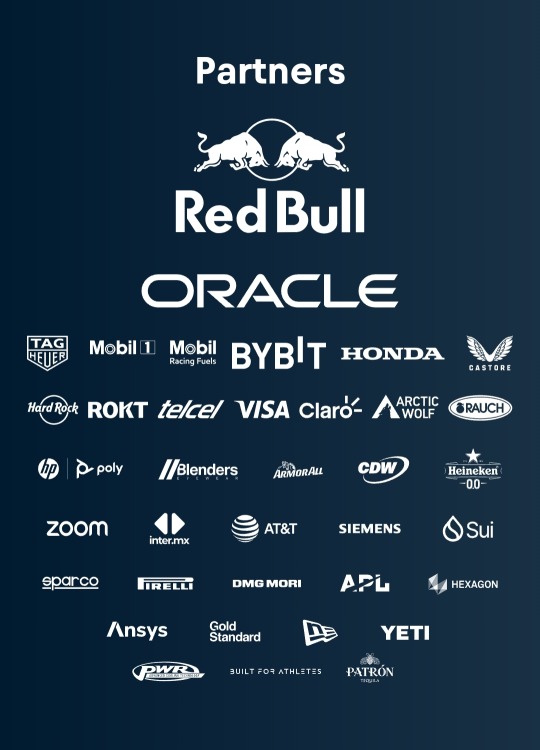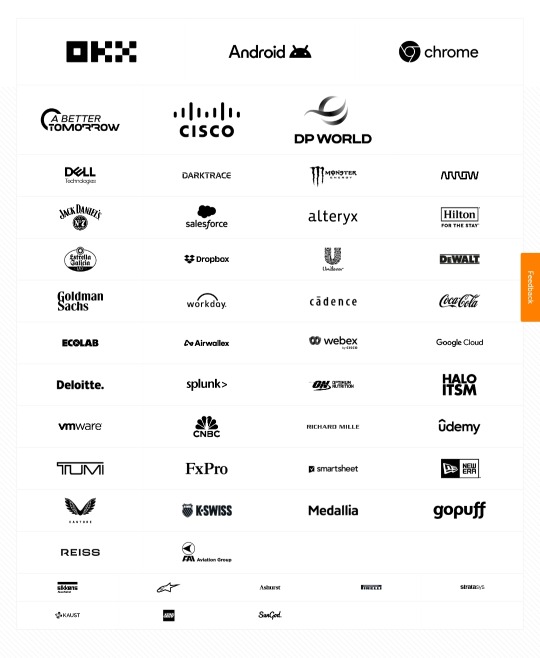#Salesforce Financial Service Cloud
Explore tagged Tumblr posts
Text
Using Salesforce AI and CRM Analytics to Enhance Financial Planning
Introduction: In an industry where trust and personalized service are paramount, financial planning professionals seek tools that enhance client relationships and streamline operations. Salesforce Financial Service Cloud, combined with CRM Analytics and Salesforce AI, is setting a new standard for CRM solutions in the financial sector. This platform enables advisors to deliver precise, data-driven financial plans that align with clients' goals and preferences.
Enhancing Financial Planning with CRM Analytics: With Salesforce Financial Service Cloud, financial planners gain a 360-degree view of their client's financial status, goals, and preferences. CRM Analytics enables planners to assess this data in real-time, identifying trends and patterns that inform better financial planning decisions. For instance, it can highlight investment preferences and potential risk areas, allowing planners to tailor recommendations to the client's specific needs.
Leveraging Salesforce AI for Predictive Insights: Salesforce AI enhances financial planning by providing predictive insights that aid in future planning. For example, it can predict changes in client needs based on historical data, enabling advisors to proactively address these changes. Furthermore, Salesforce AI's automation capabilities allow financial planners to manage more clients effectively by automating routine follow-ups, freeing up time to focus on strategic planning.
Conclusion: By integrating CRM Analytics and Salesforce AI with Salesforce Financial Service Cloud, financial planners can offer clients highly personalized, data-informed financial guidance. This approach builds trust and enhances the advisor-client relationship, setting financial planners apart in a competitive landscape. As these technologies continue to advance, they promise even greater potential for revolutionizing the way financial planning is conducted.
0 notes
Text

Unlock the full potential of your financial services business with Salesforce Financial Service Cloud solutions with GetOnCRM Solutions. Salesforce Financial Service Cloud is a comprehensive solution designed to meet the unique needs of financial institutions.
1 note
·
View note
Text
Cymetrix | Salesforce Financial Cloud Implementation Partners

Cymetrix offers expert Salesforce Financial Services Cloud solutions tailored for financial institutions. Enhance customer engagement, streamline operations, and drive growth with customized Fintech CRM, data integration, and advanced analytics. Partner with Cymetrix for scalable, secure, and innovative Salesforce solutions.
#cymetrix software#cymetrix salesforce#financial industry#financial services#salesforce finance cloud#fintech#salesforce#salesforce financial cloud services#marketing automation agency
2 notes
·
View notes
Text
Unlock Business Growth with Salesforce Financial Services Cloud Services
Empower your financial institution with Salesforce Financial Services Cloud solutions designed to enhance customer experiences, streamline operations, and drive growth. From seamless implementation to tailored consulting, these solutions provide a unified platform for managing client relationships, compliance, and financial goals. Leverage advanced tools to improve efficiency, boost productivity, and stay competitive in today’s fast-evolving financial landscape. Transform your business with Salesforce expertise today!
0 notes
Text
Experienced Salesforce Consultant Seeking Financial Services Client

Looking for a challenging project?
Seasoned Salesforce consultants at FEXLE are specialized in Financial Service Cloud implementations. With a proven track record of delivering successful projects FEXLE can help you optimize your operations and improve customer satisfaction.
Learn More here !
#salesforce crm#salesforce financial services cloud#Fexle Services#Sf Consulting company#Banking Industry
1 note
·
View note
Text
Making Financial Services Firms Thrive Amidst Challenges: Strategies for Success with Salesforce Financial Services Cloud
Explore essential strategies for achieving success with Salesforce Financial Services Cloud. This comprehensive guide delves into the benefits, best practices, and implementation techniques crucial for financial institutions. Enhance client relationships, streamline operations, and boost productivity by leveraging the full potential of this powerful platform. Stay ahead in the financial industry with actionable insights and expert advice tailored to maximize your Salesforce investment.
0 notes
Text
Maximizing Business Potential with Salesforce Financial Service Cloud
In today's rapidly evolving financial landscape, customer satisfaction and operational efficiency are paramount for success. This is where Salesforce Financial Service Cloud comes into play. But what exactly is Salesforce Financial Service Cloud?
What is Salesforce Financial Service Cloud?
Salesforce Financial Service Cloud is a specialized customer relationship management (CRM) platform designed specifically for financial service providers. It offers a comprehensive suite of tools and features tailored to the unique needs of banks, credit unions, insurance companies, wealth management firms, and other financial institutions.
In Easy Understandable Terms:
Imagine you're a bank or an insurance company. You have a lot of customers, each with their own unique needs and preferences. Managing all of this information, from customer interactions to financial data, can be overwhelming. Salesforce Financial Service Cloud acts like a supercharged organizer and communicator for your business. It helps you keep track of every customer interaction, from opening an account to resolving a support issue. It also gives you insights into your customer’s financial needs, so you can offer them the right products and services at the right time.
Advantages of Salesforce Financial Service Cloud:
Enhanced Customer Experience:
By centralizing customer data and interactions, Financial Service Cloud enables personalized and seamless experiences across all channels.
2. Improved Operational Efficiency:
Streamlined processes and automation features reduce manual workloads, allowing financial institutions to focus on delivering value to customers.
3. 360-Degree View of Customers:
Financial Service Cloud provides a comprehensive view of each customer's financial journey, empowering agents to provide informed and proactive service.
4. Scalability and Flexibility:
As a cloud-based solution, Financial Service Cloud can scale with the growth of your business and adapt to changing market demands.
5. Compliance and Security:
Built-in compliance features ensure adherence to regulatory standards, while robust security measures safeguard sensitive financial data.
Features of Salesforce Financial Service Cloud:
Client Management:
Easily manage client profiles, preferences, and interactions in one centralized location.
2. Financial Account Tracking:
Track financial accounts, transactions, and balances in real-time for a complete picture of each customer's financial status.
3. Case Management:
Efficiently handle customer inquiries, complaints, and service requests with automated case management tools.
4. Financial Planning and Advice:
Provide personalized financial advice and planning recommendations based on individual customer goals and circumstances.
5. Integration Capabilities:
Seamlessly integrate with existing systems and third-party applications to leverage data from across the organization.
Implementation of Salesforce Financial Service Cloud:
Implementing Salesforce Financial Service Cloud involves several steps:
Assessment:
Evaluate your current processes, data structures, and goals to determine the scope of implementation.
2. Customization:
Customize the platform to align with your organization's specific requirements, including data fields, workflows, and automation rules.
3. Data Migration:
Migrate existing customer data from legacy systems into Financial Service Cloud while ensuring data accuracy and integrity.
4. Training:
Provide comprehensive training to employees to ensure they are proficient in using the platform effectively.
5. Testing and Deployment:
Thoroughly test the system to identify any issues or discrepancies before deploying it for full-scale use.
6. Ongoing Support:
Provide ongoing support and maintenance to address any issues and optimize the platform for continuous improvement.
Conclusion:
In the competitive landscape of the financial services industry, staying ahead requires a combination of exceptional customer service, operational efficiency, and compliance adherence. Salesforce Financial Service Cloud offers a comprehensive solution that addresses these needs, enabling financial institutions to deliver personalized experiences, streamline operations, and drive growth. By leveraging the advantages and features of Financial Service Cloud and following best practices for implementation, organizations can unlock new levels of success and establish themselves as leaders in the industry.
0 notes
Text

Softtune Technologies' expert salesforce team is well-versed in sales cloud, service cloud, integrations, salesforce lightning architecture, and many other topics. Our salesforce wizards are dedicated to providing long-term business value to our clients. We understand your industry-specific needs and can help you improve your capabilities.
#salesforce consulting services#salesforce services#salesforce solutions#salesforce development services#salesforce professional services#salesforce financial services cloud#salesforce service cloud
0 notes
Text
2024 team sponsors recap!
this is completely irrelevant to F1 but i study and do these stuffs for a living sooo 😩😩 2023 sponsors are based on the sponsors that are there at the beginning of the season (new sponsors that join in the middle of the season will be classified as 2024's)
Mercedes AMG Petronas F1 Team:

New sponsors: Whatsapp, Luminar (American tech company), SAP (German software company), nuvei (Canadian credit card services), Sherwin Williams (American painting company) 2024 data last update: 2024/02/14
Old sponsors that left: Monster Energy, Pure Storage (American technology company), fastly (American cloud computing services), Axalta (American painting company), Eight sleep (American mattresses company) 2023 data last update: 2023/01/07
Oracle Red Bull Racing F1 Team:

New sponsors: Yeti (American cooler manufacturer, joined later in 2023), APL (American footwear/athletic apparel manufacturer, joined later in 2023), CDW (American IT company, joined later in 2023), Sui (American tech app by Mysten Labs, joined later in 2023), Patron Tequila (Mexican alcoholic beverages company, joined later in 2023) 2024 data last update: 2024/02/15
Old sponsors that left: CashApp, Walmart, Therabody (American wellness technology company), Ocean Bottle (Norwegian reusable bottle manufacturer), PokerStars (Costa Rican gambling site), Alpha Tauri (? no info if they're official partners or not but Austrian clothing company made by Red Bull), BMC (Switzerland bicycle/cycling manufacturer), Esso (American fuel company, subsidiary of ExxonMobil), Hewlett Packard Enterprise (American technology company) 2023 data last update: 2023/03/07
More: Esso is a subsidiary of Mobil so there's possibility they merged or something
Scuderia Ferrari:

New sponsors: VGW Play (Australian tech game company, joined later in 2023), DXC Technology (American IT company, joined later in 2023), Peroni (Italian brewing company), Z Capital Group/ZCG (American private asset management/merchant bank company), Celsius (Swedish energy drink manufacturer) 2024 data last update: 2024/02/15
Old sponsors that left: Mission Winnow (American content lab by Phillip Morris International aka Marlboro), Estrella Garcia (Spanish alcoholic beverages manufacturer), Frecciarossa (Italian high speed train company) 2023 data last update: 2023/02/16
More: Mission Winnow is a part of Phillip Morris International. They are no longer listed as team sponsor but PMI is listed instead.
(starting here, 2023 data last update is 2023/02/23 and 2024 data last update is 2024/02/15)
McLaren F1 Team: (Only McLaren RACING's data is available idk if some of these are XE/FE team partners but anw..)

New sponsors: Monster Energy, Salesforce (American cloud based software company, joined later in 2023), Estrella Garcia (Spanish alcoholic beverages manufacturer), Dropbox (American file hosting company), Workday (American system software company, joined later in 2023), Ecolab (American water purification/hygiene company), Airwallex (Australian financial tech company), Optimum Nutrition (American nutritional supplement manufacturer), Halo ITSM (American software company, joined later in 2023), Udemy (American educational tech company, joined later in 2023), New Era (American cap manufacturer, joined in 2023), K-Swiss (American shoes manufacturer, joined later in 2023), Alpinestars (Italian motorsports safety equipment manufacturer)
Old sponsors that left: DP World (Emirati logistics company), EasyPost (American shipping API company), Immersive Labs (UK cybersecurity training company?), Logitech, Mind (UK mental health charity), PartyCasino (UK? online casino site), PartyPoker (American? gambling site), Sparco (Italian auto part & accessory manufacturer), Tezos (Switzerland crypto company)
Aston Martin Aramco F1 Team:

New sponsors: Valvoline (American retail automotives service company, joined later in 2023), NexGen (Canadian sustainable? fuel company), Banco Master (Brazilian digital banking platform, joined later in 2023), ServiceNow (American software company, joined later in 2023), Regent Seven Seas Cruise, Wolfgang Puck (Austrian-American chef and restaurant owner, joined later in 2023), Financial Times (British business newspaper), OMP (Italian racing safety equipment manufacturer), stichd (Netherlands fashion & apparel manufacturer)
Old sponsors that left: Alpinestars (Italian motorsports safety equipment manufacturer), crypto.com (Singaporean cryptocurrency company), ebb3 (UK? software company), Pelmark (UK fashion and apparel manufacturer), Peroni (Italian brewing company), Porto Seguro (Brazilian insurance company), Socios (Malta's blockchain-based platform), XP (Brazilian investment company)
Stake F1 Team (prev. Alfa Romeo):
???? Can't found their website (might be geoblocked in my country???)
BWT Alpine F1 Team:

New sponsors: MNTN (American software company), H. Moser & Cie (Switzerland watch manufacturer), Amazon Music
Old sponsors that left: Bell & Ross (French watch company), Ecowatt (??? afaik French less-energy smthn smthn company), Elysium (French? American? Software company), KX (UK software company), Plug (American electrical equipment manufacturing company)
Visa CashApp RB F1 Team (prev. Scuderia Alpha Tauri):

New Sponsors: Visa, CashApp, Hugo Boss, Tudor, Neft Vodka (Austrian alcoholic beverages company), Piquadro (Italian luxury bag manufacturer)
Old sponsors that left: Buzz (?), Carl Friedrik (UK travel goods manufacturer), Flex Box (Hongkong? shipping containers manufacturer), GMG (Emirati global wellbeing company), RapidAPI (American API company)
Haas F1 Team:

New sponsors: New Era (American cap manufacturer, joined later in 2023)
Old sponsors that left: Hantec Markets (Hongkong capital markets company), OpenSea (American NFT/Crypto company)
Williams Racing:


New sponsors: Komatsu, MyProtein (British bodybuilding supplement), Kraken (American crypto company, joined later in 2023), VAST Data (American tech company), Ingenuity Commerce (UK e-commerce platform), Puma (joined later in 2023)
Old sponsors that left: Acronis (Swiss software company), Bremont (British watch manufacturer), Dtex Systems (American? cybersecurity company), Financial Times (British business newspaper), Jumeirah Hotels & Resorts, KX (UK software company), OMP (Italian racing safety equipment manufacturer), PPG (American painting manufacturer), Umbro (English sports equipment manufacturer), Zeiss (German opticals/optometrics manufacturing company)
#mercedes amg petronas#red bull racing#scuderia ferrari#visa cash app rb#haas f1 team#mclaren f1#aston martin#alpine f1#williams racing#stake f1 team#f1#ari's rant#sponsor talks
42 notes
·
View notes
Text
AI-Powered Transformation in Salesforce Financial Service Cloud and CRM Analytics
Introduction The rise of artificial intelligence (AI) is reshaping industries globally, and Salesforce has embraced this change with open arms. By integrating AI into its platform, Salesforce is enhancing customer relationship management (CRM) and analytics, offering businesses more precise insights and automation. The Salesforce Financial Service Cloud, specifically designed for the financial sector, leverages these tools to improve decision-making, customer service, and overall business performance.
AI Integration in Salesforce Salesforce and AI-powered features, like Salesforce Einstein, have brought significant improvements to its CRM platform. By embedding AI into Salesforce solutions, companies can predict trends, automate workflows, and provide more personalized experiences to their customers. For financial institutions, this means being able to anticipate customer needs, streamline operations, and make more informed financial decisions.
AI enhances CRM analytics by offering predictive insights that traditional tools could not provide. For instance, AI can analyze vast datasets, identifying patterns that help businesses predict customer behavior. This allows companies to tailor their services, improving customer satisfaction and retention. With AI at the helm, Salesforce users can optimize marketing campaigns, sales forecasts, and customer interactions.
CRM Analytics for Better Insights CRM analytics has long been a key feature of Salesforce, providing businesses with tools to track and analyze customer interactions. The introduction of AI has elevated CRM analytics by delivering real-time, actionable insights. Companies can now track key metrics, identify emerging trends, and make data-driven decisions that improve business performance.
For financial institutions, these analytics are essential. With Salesforce Financial Service Cloud, banks and financial advisors can monitor customer portfolios, analyze risk factors, and develop personalized financial strategies. The platform’s AI-driven insights allow them to make more accurate predictions about customer needs, ensuring that their services are always relevant and timely.
Salesforce Financial Service Cloud in Action The Salesforce Financial Service Cloud is designed to address the unique needs of the financial industry. It offers comprehensive tools for managing client relationships, automating processes, and providing personalized service. The addition of AI capabilities further enhances the platform, enabling institutions to operate more efficiently.
With AI, financial advisors can automate routine tasks such as client onboarding and reporting. This allows them to focus more on building relationships with clients. CRM analytics further helps by providing real-time data on client portfolios, market trends, and financial performance, enabling advisors to make informed decisions quickly.
The Salesforce Financial Service Cloud’s AI-powered features also help institutions meet regulatory requirements by automating compliance processes. This ensures that financial firms stay ahead of the curve in an increasingly complex regulatory environment.
Conclusion Salesforce, through its AI-driven CRM analytics and Financial Service Cloud, is revolutionizing how financial institutions operate. The integration of AI allows businesses to unlock deeper insights, automate routine tasks, and deliver more personalized customer experiences. As AI technology continues to advance, its role in Salesforce will only become more integral, further transforming the way businesses interact with their customers and manage financial services.
0 notes
Text
Salesforce's AI Platform Agentforce Sparks Analyst Optimism with Buy Ratings
Salesforce’s Agentforce platform gains attention, with analysts maintaining strong “Buy” ratings and growth potential.
Salesforce, Inc. (NYSE:CRM), a pioneer in cloud-based CRM services, is creating a stir with the introduction of Agentforce, an AI-powered platform. One important aspect of this new project is the introduction of Agent Exchange, a marketplace that directly links with Agentforce. Through the marketplace, partners and developers can create and offer AI technologies that are suited to the requirements of companies utilizing Salesforce's CRM services.
Raimo Lenschow, an analyst at Barclays, maintained a "Buy" rating on the stock and set a price objective of $425.00 in a research report published on March 6. The grade comes after the business launched AgentExchange, a reliable community and marketplace for Agentforce.
With its direct integration into its AI CRM platform, Salesforce, Inc.'s (NYSE:CRM) new marketplace and community enable partners, developers, and the Agentblazer community to create and market agentic AI components. Following the company's earnings release, a number of other investment firms have also expressed optimism about the stock.
DBS kept its buy recommendation on Salesforce as of March 3rd, with a $422.00 price objective. Mizuho Securities analyst Gregg Moskowitz maintained the price objective at $425.00 and reaffirmed a "Buy" recommendation on Salesforce that same day. These companies' buy recommendations are supported by the company's strong financial results and room for expansion.
On our list of AI stocks that Wall Street depends on, CRM comes in at number seven overall. Although we appreciate CRM's potential as an investment, we believe that some AI stocks have a better chance of producing larger returns in a shorter amount of time. Check out our research on the cheapest AI stocks if you're searching for a more promising AI firm than CRM that trades at less than five times its profits.
2 notes
·
View notes
Text
Why Modern Businesses Rely on Integration Platform as a Service IPAAS for Seamless Connectivity
In today’s rapidly evolving digital landscape, businesses operate on a growing ecosystem of applications. From CRM software to ERP systems and marketing automation tools, companies rely on a suite of platforms to stay competitive. But the challenge lies in connecting these tools effectively. This is where an Integration Platform as a Service IPAAS becomes indispensable.
What Is iPaaS? iPaaS is a cloud-based integration solution that enables businesses to connect various applications, systems, and data sources—whether on-premises or in the cloud. With real-time data synchronization and automated workflows, it simplifies integration and enhances operational efficiency.
Benefits of iPaaS Using an iPaaS platform means no more juggling multiple APIs or spending months on manual integrations. These platforms offer:
Cloud-based integration for increased accessibility
Real-time data sync between systems like CRM, ERP, and CMS
Scalability for growing business needs
API management for seamless third-party integration
Use Cases for iPaaS Imagine a retail business using Shopify for e-commerce, Salesforce for CRM, and QuickBooks for accounting. Without integration, syncing customer orders and financials is a nightmare. But with an Integration Platform as a Service IPAAS, all these platforms can talk to each other in real-time.
The Road to Digital Transformation Adopting iPaaS is not just a tech upgrade—it’s a strategic move. It empowers teams with centralized data, reduces errors, and shortens time-to-market for digital products.
For businesses aiming to scale efficiently and embrace digital transformation, an Integration Platform as a Service IPAAS is the backbone of successful operations.
#cloud-based integration#real-time data sync#SaaS integration#hybrid cloud environments#API management
0 notes
Text
Generative AI in Financial Services Market Scope, Share, and Industry Forecast 2032
The Generative AI In Financial Services Market was valued at USD 2.1 Billion in 2023 and is expected to reach USD 358.4 Billion by 2032, growing at a CAGR of 39.80% from 2024-2032.
Generative AI in Financial Services Market: Transforming the Landscape The financial services industry is undergoing a technological revolution, with generative artificial intelligence (AI) at the forefront of innovation. This emerging technology is reshaping how banks, insurance firms, asset managers, and fintech companies operate, enabling smarter decision-making, enhanced customer experiences, and operational efficiency. By leveraging deep learning models capable of generating human-like content, institutions are automating complex processes—from fraud detection and risk modeling to personalized financial advisory services.
Generative AI in Financial Services Market: Transforming the Landscape With rapid advancements in machine learning and natural language processing, generative AI is now being applied to critical financial functions such as algorithmic trading, credit scoring, and compliance monitoring. The integration of generative models helps organizations uncover new revenue streams, reduce costs, and remain agile in a highly regulated environment. As customer demands evolve and data becomes more complex, the ability to interpret, generate, and act on information swiftly is proving to be a game-changer for financial institutions.
Get Sample Copy of This Report: https://www.snsinsider.com/sample-request/5957
Market Keyplayers:
IBM Corporation – Watsonx
Microsoft Corporation – Azure OpenAI Service
Google LLC – Vertex AI
Amazon Web Services (AWS) – Amazon Bedrock
OpenAI – ChatGPT Enterprise
Salesforce, Inc. – Einstein GPT
Nvidia Corporation – NeMo Framework
SAP SE – SAP Business AI
Oracle Corporation – Oracle AI
FIS (Fidelity National Information Services, Inc.) – FIS Code Connect AI
Intuit Inc. – Intuit Assist
Mastercard Incorporated – AI-Powered Cybersecurity & Fraud Detection
Visa Inc. – AI-driven Risk & Fraud Management
JPMorgan Chase & Co. – IndexGPT
Ernst & Young (EY) – EY.ai
Market Analysis
The global market for generative AI in financial services is witnessing strong growth, driven by rising investments in AI technology, the digital transformation of financial operations, and the demand for advanced analytics. North America currently holds the largest market share, while Asia-Pacific is emerging as the fastest-growing region due to increased fintech adoption and favorable government initiatives. Major industry players are collaborating with AI startups and research institutions to gain a competitive edge.
Scope
Generative AI has wide-ranging applications across the financial ecosystem. It supports real-time decision-making, enables hyper-personalization of services, streamlines regulatory reporting, and automates content generation for customer communications. The technology also enhances cybersecurity measures by identifying patterns and anomalies faster than traditional systems.
Key Trends
Rise in AI-Powered Risk Management Tools – Enhanced predictive capabilities are helping firms manage credit, market, and operational risks more effectively.
Personalized Customer Engagement – AI is enabling tailored advice and financial products based on individual behavior and preferences.
Integration with Blockchain – Combining generative AI with distributed ledger technology to improve transaction transparency and automation.
AI-Driven Compliance and Regulatory Reporting – Automating compliance workflows and minimizing human errors in reporting.
Voice-Enabled Financial Assistants – Intelligent chatbots and voice agents are redefining customer service in banking and wealth management.
Investment in AI Talent and Infrastructure – Organizations are building internal AI teams and investing in cloud-based infrastructure to scale their capabilities.
Future Prospects
The outlook for generative AI in financial services remains highly optimistic. As technology matures and becomes more accessible, its applications will expand beyond current use cases, enabling institutions to unlock deeper insights, accelerate innovation, and build resilient digital infrastructures. Ethical and transparent deployment will be key to long-term success, with a focus on responsible AI practices and regulatory compliance.
Access Complete Report: https://www.snsinsider.com/reports/generative-ai-in-financial-services-market-5957
Conclusion
Generative AI is not just an emerging technology—it is a strategic asset that is redefining the future of finance. With its transformative potential, it offers unparalleled opportunities for innovation, efficiency, and growth. As financial institutions continue to adapt and evolve, those that embrace generative AI today will be best positioned to lead tomorrow
About Us:
SNS Insider is one of the leading market research and consulting agencies that dominates the market research industry globally. Our company's aim is to give clients the knowledge they require in order to function in changing circumstances. In order to give you current, accurate market data, consumer insights, and opinions so that you can make decisions with confidence, we employ a variety of techniques, including surveys, video talks, and focus groups around the world.
Contact Us:
Jagney Dave - Vice President of Client Engagement
Phone: +1-315 636 4242 (US) | +44- 20 3290 5010 (UK)
#Generative AI in Financial Services Market#Generative AI in Financial Services Market Scope#Generative AI in Financial Services Market Growth#Generative AI in Financial Services Market Trends
0 notes
Text
Mobile CRM Market Insights: Transforming Customer Relationship Management in the Digital Age
The Mobile Customer Relationship Management (CRM) market is evolving rapidly, driven by the global shift towards mobile-first business strategies. As companies strive to enhance customer engagement and streamline sales processes, mobile CRM solutions are becoming essential tools. These platforms enable businesses to manage customer interactions, track sales performance, and analyze consumer behavior—all from smartphones and tablets. This article delves into the current landscape of the Mobile CRM market, highlighting key insights, growth drivers, challenges, and the future outlook.

Market Overview
Mobile CRM refers to CRM applications designed for use on mobile devices, allowing sales teams, customer support, and marketing professionals to access and update customer data in real time, regardless of location. This real-time access improves productivity, enhances customer satisfaction, and accelerates decision-making processes.
According to market research, the Mobile CRM market was valued at approximately USD 15 billion in 2022 and is projected to exceed USD 30 billion by 2027, growing at a compound annual growth rate (CAGR) of around 14%. This growth is fueled by increasing smartphone adoption, the proliferation of mobile workforces, and the demand for on-the-go access to business-critical information.
Key Market Insights
1. Rise of Mobile-First Workforces
With remote and hybrid work models becoming the norm, businesses are prioritizing mobility. Sales and customer service teams are frequently on the move, and mobile CRM ensures they have uninterrupted access to customer data, product catalogs, and communication tools. This shift significantly boosts CRM adoption among mobile and field-based teams.
2. Integration with Cloud and AI Technologies
Modern mobile CRMs integrate seamlessly with cloud platforms, enabling secure and scalable data access. Furthermore, Artificial Intelligence (AI) is being increasingly integrated into mobile CRMs to provide predictive analytics, automate routine tasks, and offer smart recommendations. AI-powered chatbots and virtual assistants also enhance customer interactions.
3. SME Adoption on the Rise
Small and medium enterprises (SMEs) are increasingly embracing mobile CRM solutions due to their affordability, ease of deployment, and scalability. Startups benefit from mobile CRMs like HubSpot, Zoho, and Freshsales, which offer freemium models and customization options.
4. Industry-Specific Solutions
Vendors are now offering industry-specific mobile CRM solutions tailored to healthcare, retail, real estate, and financial services. These customized platforms help businesses comply with regulatory requirements while delivering targeted functionalities, such as appointment scheduling, field service management, and transaction tracking.
Market Segmentation
By Deployment: Cloud-based and On-premise
By End User: BFSI, Healthcare, Retail, Telecom, Manufacturing, and Others
By Region: North America, Europe, Asia-Pacific, Latin America, and MEA
North America dominates the market due to advanced technological infrastructure and early adoption of CRM tools. However, the Asia-Pacific region is expected to witness the highest growth rate, driven by digital transformation initiatives and mobile penetration in emerging economies.
Leading Players in the Market
Some of the prominent players in the Mobile CRM market include:
Salesforce
Microsoft Dynamics 365
Zoho CRM
HubSpot
Oracle
SAP
Insightly
Pipedrive
Nimble
Freshworks
These companies continue to invest in mobile innovation, AI, and user experience enhancements to stay competitive.
Challenges and Constraints
Despite strong growth prospects, the market faces several challenges:
Data Security Concerns: Mobile CRMs deal with sensitive customer data, making them targets for cyber threats. Ensuring data security and compliance is critical.
Limited Offline Functionality: Many mobile CRMs require internet connectivity, which can be a limitation in remote or rural areas.
User Adoption and Training: Employees may resist adopting new systems due to a lack of training or unfamiliarity with mobile platforms.
Future Outlook
The Mobile CRM market is poised for continued expansion, underpinned by technological advancements and changing business dynamics. In the coming years, we can expect:
More AI-driven features, including voice-enabled CRM, predictive lead scoring, and emotion analysis.
Increased focus on user experience, with intuitive interfaces, gamification, and customizable dashboards.
Enhanced omnichannel support, integrating email, social media, SMS, and WhatsApp for seamless customer engagement.
Deeper analytics and reporting, enabling businesses to make data-driven decisions from mobile platforms.
Conclusion
The Mobile CRM market represents a pivotal shift in how businesses manage customer relationships in the digital era. By enabling real-time access to customer data and streamlining field operations, mobile CRMs are driving efficiency and enhancing customer satisfaction. As businesses prioritize agility and connectivity, mobile CRM adoption will continue to soar, redefining CRM strategies and setting new standards for customer engagement.
0 notes
Text
How to Scale Your Business Without Wasting Time or Money

Scaling a business isn’t just about growth — it’s about strategic, sustainable, and cost-effective growth. As companies navigate through complex market dynamics, the challenge lies in expanding operations while optimizing both time and financial resources. Below, we present a comprehensive guide to scaling your business efficiently without unnecessary delays or expenditures.
Establish Clear, Scalable Systems from the Start
The first step in scaling without waste is building streamlined systems. Without scalable infrastructure, growth creates chaos rather than results.
Key strategies:
Automate repetitive tasks with tools like Zapier, Asana, and HubSpot to minimize manual work.
Standardize workflows using SOPs (Standard Operating Procedures) for customer service, onboarding, inventory management, and marketing.
Implement cloud-based platforms like Google Workspace, Slack, and Trello for team collaboration that can grow with your company.
Hire Smarter, Not Bigger
Expanding your team should be strategic, not excessive. Every new hire should bring tangible ROI.
Optimize your hiring process:
Prioritize multi-skilled professionals over specialists to cover more ground.
Use freelancers or virtual assistants for non-core tasks like data entry, customer follow-ups, or social media scheduling.
Leverage outsourcing partners for services like payroll, IT support, or HR.
This approach reduces overhead and maintains operational agility.
Use Data-Driven Decision Making
Scaling without wasting money begins with tracking every dollar and analyzing performance metrics relentlessly.
Key areas to monitor:
Customer acquisition cost (CAC) and lifetime value (LTV) to assess marketing effectiveness.
Conversion rates, churn, and upsell opportunities within your sales funnel.
Return on Ad Spend (ROAS) to fine-tune digital advertising.
Tools like Google Analytics, Hotjar, and SEMrush can help you identify bottlenecks and uncover hidden growth opportunities.
Leverage the Power of Lean Marketing
Gone are the days of bloated ad budgets. Today’s successful companies focus on lean, high-ROI marketing tactics.
Top lean marketing strategies:
Focus on organic SEO through high-quality content, keyword research, and backlink building.
Build an email marketing funnel to nurture and convert leads with tools like Mailchimp or ConvertKit.
Maximize visibility through social proof — testimonials, case studies, influencer shout-outs, and user-generated content.
These tactics generate long-term brand equity without constant spending.
Double Down on Core Offerings Before Expanding
Too many businesses waste money by diversifying too early. Focus on what you do best, and dominate your niche before expanding.
Steps to refining your core offerings:
Conduct customer feedback loops to improve your most popular products or services.
Create bundles or tiered pricing to increase average transaction value.
Use cross-selling and upselling strategies that increase revenue without increasing customer acquisition cost.
Scaling is smoother when your core business is profitable, repeatable, and optimized.
Adopt Scalable Technology Solutions
The right technology is your best ally in reducing costs and saving time as you grow.
Key tech tools for scaling efficiently:
CRM platforms like Salesforce or Zoho for managing customer relationships.
ERP software like NetSuite or Odoo for real-time business operations control.
Accounting platforms like QuickBooks or Xero for automating invoicing, payroll, and expense tracking.
Cloud-based, subscription-model software ensures you only pay for what you use, and can scale up as needed.
Focus on Customer Retention Over Acquisition
Customer acquisition is expensive. It’s far more cost-effective to retain and upsell existing customers.
Retention-focused strategies:
Implement loyalty programs to reward repeat business.
Personalize communication using behavioral data and past purchase history.
Offer exceptional customer support to reduce churn and build brand advocates.
The longer a customer stays, the greater their lifetime value — which means more growth, with less marketing cost.
Bootstrap Intelligently When Possible
Bootstrapping isn’t about pinching pennies — it’s about prioritizing investments.
Best bootstrapping practices:
Reinvest revenue into high-yield activities, such as product development and content marketing.
Negotiate with vendors and service providers for long-term deals or performance-based pricing.
Delay fixed overhead expenses like office leases and full-time hires until absolutely necessary.
Being frugal at the right moments creates financial flexibility when it counts.
Use Strategic Partnerships to Accelerate Growth
Collaborations can provide instant scale without the financial strain of building from scratch.
Types of valuable partnerships:
Affiliate programs that reward others to sell for you.
Co-marketing campaigns with complementary businesses to reach broader audiences.
Wholesale or distribution alliances that put your product in more hands without increasing internal logistics.
These partnerships reduce the need for heavy capital investment in growth.
Maintain a Growth-Ready Mindset
Scaling isn’t just about operations — it’s about culture.
Key mindset shifts:
Embrace continuous learning and encourage your team to do the same.
Set aggressive but realistic KPIs, and celebrate incremental wins.
Foster a fail-fast attitude, where experimentation is encouraged and learning is fast.
Culture plays a critical role in sustaining momentum during periods of rapid growth.
Conclusion: Growth Without Waste Is Possible
Scaling your business doesn’t require breaking the bank or burning out your team. With the right systems, strategy, and mindset, you can achieve rapid, efficient, and sustainable growth. Focus on lean processes, data-driven marketing, customer loyalty, and technology-powered scalability. These elements are the foundation of any business that wants to grow smartly, not just quickly.
0 notes
Text
Why Businesses Are Making the Shift to Microsoft 365 in 2025
The business landscape in 2025 is rapidly evolving. Organizations are re-evaluating legacy systems to stay competitive in a hybrid and cloud-first world. Among the many platforms leading this transition, Microsoft 365 has emerged as the clear choice for companies looking to modernize their collaboration, communication, and data security frameworks.

This shift isn’t driven by trends. It’s fueled by tangible needs and technical advantages that directly address the gaps in traditional setups.
Unified Productivity Across Devices and Locations
Modern businesses no longer operate within the confines of office walls. Teams work across time zones, from multiple devices, and demand seamless access to files and communication tools. Microsoft 365 provides a consistent experience across desktop, web, and mobile platforms. Whether it’s collaborating in real-time on Word documents or scheduling across departments in Outlook, everything stays synchronized without manual effort.
Integrated Security with Zero Trust Capabilities
In 2025, security is no longer about firewalls and antivirus tools. Organizations are adopting zero trust architectures that assume no user or device can be inherently trusted. Microsoft 365 supports this model with tools like Microsoft Defender, Conditional Access, and compliance score dashboards. Identity-based protection, automated threat detection, and advanced encryption ensure that sensitive data is safeguarded at every access point.
Simplified IT Management with Centralized Controls
Managing infrastructure across multiple systems creates operational silos. Microsoft 365 addresses this by offering a unified admin center that allows IT teams to control users, licenses, policies, and compliance settings from a single dashboard. Endpoint management with Intune and integration with Azure Active Directory further reduces friction in managing distributed devices and user identities.
Built-In Tools for Automation and Custom Workflows
Time-consuming manual tasks impact productivity. Microsoft 365 empowers businesses to build automation without the need for complex coding. Power Automate enables workflow automation between applications. Teams can set triggers for approvals, data collection, notifications, and document routing. The integration with Power Platform also allows enterprises to build low-code apps that extend beyond default functionality.
Scalable Licensing and Predictable Cost Model
Unlike traditional software that requires hefty upfront investments, Microsoft 365 offers flexible subscription models. Businesses can scale licenses based on growth without over committing resources. This pay-as-you-go structure provides financial predictability while ensuring access to the latest features and updates without additional costs or downtime.
Advanced Collaboration in Microsoft Teams
Email is no longer the sole communication tool for agile teams. Microsoft Teams has become the digital workspace for file sharing, video meetings, and project coordination. With integration to SharePoint, OneDrive, Planner, and Loop components, Teams provides a unified platform where work happens without switching between tools. The 2025 enhancements also bring improved AI-driven meeting summaries, language translation, and collaboration insights.
Seamless Integration with Third-Party and Legacy Systems
Enterprises often rely on third-party tools or legacy applications for daily operations. Microsoft 365 supports deep integrations with popular platforms like Salesforce, Adobe, and Service Now. Additionally, with connectors, APIs, and hybrid deployment options, businesses can bridge the gap between on-premises data and cloud services without disrupting existing workflows.
Compliance and Data Residency Control
Regulatory compliance is a key driver for digital transformation. Microsoft 365 offers built-in solutions for eDiscovery, data retention, legal holds, and audit trails. The platform supports regional data residency requirements, helping businesses stay compliant with local and international data protection laws. With tools like Microsoft Purview, organizations can monitor and manage their data classification and governance policies centrally.
AI and Analytics for Smarter Decision Making
Productivity alone doesn’t drive business value. Organizations need insights. Microsoft 365 brings intelligence into everyday workflows. With Microsoft Copilot, users receive AI-powered suggestions directly inside Word, Excel, and Outlook. Viva Insights offers behavioral analytics to enhance team well-being and performance. These tools help businesses move from reaction to prediction, enabling proactive decision-making.
Future-Ready Cloud Infrastructure
Scalability and redundancy are core to any enterprise IT strategy. Microsoft 365 is built on the global Azure infrastructure which offers 99.99% uptime, geo-redundancy, and disaster recovery support. Businesses migrating in 2025 are positioning themselves for the future by eliminating hardware dependencies and ensuring business continuity even under unexpected conditions.
A Trusted Ecosystem for Migration and Implementation
Many businesses rely on certified solutions to facilitate the migration process and reduce the risk of data loss or downtime. EdbMails Office 365 migration tool simplify complex migration scenarios such as PST to Microsoft 365, cross-tenant transitions, and legacy email platform imports. This ensures that businesses can make the shift with precision and minimal disruption.
Conclusion
The Office 365 migration in 2025 is not just about moving email to the cloud. It's a strategic upgrade in how businesses operate, secure data, and empower teams. Enterprises are choosing it not because it’s popular, but because it offers unmatched control, scalability, and innovation that aligns with their long-term digital strategy.
Those who invest in this transition are not simply upgrading technology. They are redefining the way their workforce collaborates, communicates, and creates value in a digital-first economy.
Additional resources:
👉 Tenant to tenant migration
👉 Migrate Archive Mailbox to Office 365
0 notes